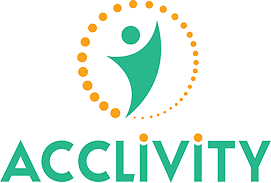In the intricate tapestry of higher education, BIPOC women often find themselves navigating through a maze of challenges unique to their intersectional identities. While the pursuit of knowledge knows no bounds, systemic biases and institutional inequities often result in BIPOC women receiving disproportionately lower compensation for their contributions. Let’s delve into this pressing issue and explore how career coaching can serve as a beacon of empowerment amidst these challenges.
Challenges on the Academic Battlefield
- Underrepresentation: Despite significant strides, BIPOC women remain underrepresented in academia, particularly in leadership roles. The scarcity of role models and mentors can impede their progress and hinder the cultivation of a supportive professional network.
- Stereotype Threat: Battling against stereotypes and biases can be a constant struggle for BIPOC women in academia. The pressure to defy stereotypes while staying true to oneself can create a daunting psychological burden, impacting confidence and performance.
- Intersectional Discrimination: Intersectionality magnifies the challenges faced by BIPOC women as they navigate through layers of discrimination based on race, gender, and often class. This multifaceted oppression can manifest in various forms, from microaggressions to institutional barriers.
- Work-Life Balance: Balancing academic pursuits with personal responsibilities can be particularly challenging for BIPOC women, who often juggle caregiving roles and community commitments alongside their academic endeavors. The lack of institutional support for work-life balance exacerbates this struggle.
- Wage Gap Realities: Despite their qualifications and expertise, BIPOC women in academia continue to face a glaring wage gap compared to their counterparts. Studies reveal that BIPOC women earn significantly less than White men and women in similar academic positions, highlighting systemic disparities in compensation.
- Impact on Financial Security: Unfair pay practices not only undermine the financial security of BIPOC women but also perpetuate cycles of economic disadvantage. Lower wages limit access to resources and opportunities for career advancement, perpetuating a cycle of inequality that reverberates across generations.
Amidst these challenges, academic career coaching emerges as a beacon of hope, offering tailored guidance and support to navigate the complexities of academia. Here’s how academic career coaching can empower BIPOC women in higher education:
- Negotiation Strategies: Academic career coaches equip BIPOC women with negotiation skills and strategies to advocate for fair compensation. By providing guidance on salary negotiations and navigating institutional policies, career coaching empowers BIPOC women to assert their value and demand equitable treatment.
- Market Awareness and Positioning: Academic career coaches provide insights into market trends and salary benchmarks within academia, enabling BIPOC women to position themselves competitively in the job market. By understanding their worth and the value of their contributions, BIPOC women can challenge wage disparities and seek opportunities for advancement.
- Professional Development: Academic career coaching offers tailored professional development opportunities to enhance skills and qualifications, increasing marketability and bargaining power. By investing in continuous learning and skill-building, BIPOC women can position themselves for higher-paying roles and leadership positions within academia.
- Cultivating Confidence: Through mentorship and skill-building exercises, academic career coaching empowers BIPOC women to cultivate confidence and assertiveness, enabling them to navigate professional challenges with resilience.
- Advocacy and Visibility: Academic career coaches advocate for the visibility and recognition of BIPOC women’s contributions to academia, challenging institutional biases and advocating for policies that promote pay equity. By amplifying their voices and experiences, career coaching empowers BIPOC women to drive systemic change and create a more inclusive and equitable academic landscape.
- Networking and Mentorship: Academic career coaches facilitate networking opportunities and mentorship connections, bridging the gap between aspiring academics and established professionals. These networks offer invaluable support and guidance in navigating the academic landscape.
As we confront the realities of the labyrinth of higher education and unfair pay disparities in academia, let us recognize the urgency of collective action to address systemic inequities. By embracing the power of academic career coaching, we can empower BIPOC women to overcome barriers, realize their full potential, navigate the labyrinth of wage inequality, demand fair compensation for their contributions, and shatter the glass ceilings that hinder their advancement.
Are you a BIPOC woman navigating the challenges of academia? Take the first step towards empowerment by seeking out academic career coaching tailored to your unique journey. Together, we can create a more inclusive and equitable academic landscape for all.
Contact Dr. Loren M. Hill to explore how academic career coaching can empower you and, accelerate your career, and navigate the challenges ahead.

